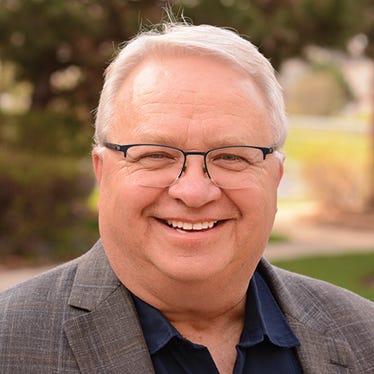
The long-term outlook for agriculture is still great, said Vikram Mansharamani at the recent Bayer AgVocacy Forum.
But the short-term outlook is not so good.
The long-term outlook for agriculture is still great because the world population is still growing, said Mansharamani, a leading economist, futurist, and Harvard University and Yale University lecturer.
Rising incomes in India and Africa are still supposed to swell the ranks of the middle class. As people earn more money, they’ll likely spend some of it on better food — mostly meat, which will increase demand for chicken, pork and beef and the grains necessary to feed poultry, swine and cattle.
But in the short term, there’s too much of nearly everything that farmers produce. The problem is China. China’s development bubble burst just as global agriculture was ramping up to meet up new demand.
Some uncertainty has crept into the middle-class growth scenario, too. Will the new middle class be able to compete with robots for the jobs that are available? Where will these individuals get their money? It’s like the story about the automaker and union boss who were looking at new robots on the assembly line, Mansharamani said.
The car company CEO teased the union boss: “How are you going to get the robots to pay union dues?” And the union boss replied to the CEO: “You don’t get it. The question is, how are you going to get those robots to buy your cars?”
Will eating habits change in the new middle classes?
Another question about new members of the middle class in India and Africa: Will their eating habits be different than the old middle class in North America, Japan and Europe? Will they actually buy more meat, or will they follow the lead of millennials and get more of their protein from plants?
Asked what he would do if he were a farmer, Mansharamani said that he would be financially conservative. He would try to ride out the current downturn in farm income, but hold his operation together so that he would be able to expand when new demand kicked in.
What new crops would Mansharamani be looking at growing if he were a farmer?
Plant based proteins — like tree nuts — and healthy fats, he said. That hedges the bet against changing diets and fits the major social trends.
Mansharamani is president of Kelan Advisors, a global consulting firm. He shows clients how to anticipate the future, manage risk and spot hidden opportunities. He gained widespread attention with the release of his first book, “Boombustology: Spotting Financial Bubbles Before They Burst,” in 2011. Since then, he has been a frequent commentator on issues driving disruption in the global business environment. He is a regular contributor to Worth magazine and "PBS NewsHour." His commentaries have been featured on Bloomberg, CNBC, Fortune, The New York Times and The Daily Beast, among others. Mansharamani was No. 1 on LinkedIn’s list of Top 10 Voices in Money and Finance in 2015, where his commentaries were shared more than a million times.
Follow him at mansharamani.com and @mansharamani on Twitter.
About the Author(s)
You May Also Like






